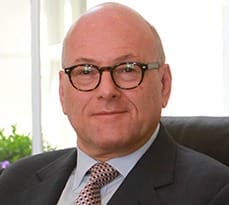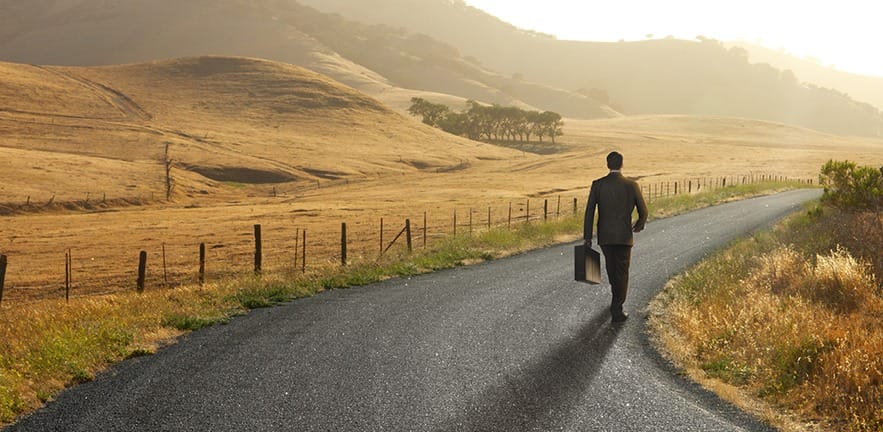We asked entrepreneur and philanthropist Lloyd Dorfman, founder of currency exchange company Travelex and Chairman of the Prince’s Trust, about how young entrepreneurs can get started and the complementary roles of business and charity.

The entrepreneurial bug is largely instinctive. An entrepreneur is by definition a risk-taker. The appetite to undertake and manage risk is not in everybody’s make-up. With risk comes uncertainty, which not everyone is comfortable with. I was extremely interested in business at school and always knew I wanted to run my own enterprise.
A combination of instinct and persistence are essential for young entrepreneurs starting out. I started Travelex from one small shop in central London 40 years ago. On paper, 1976 was not a great year to start a foreign exchange business: there were exchange controls, the market was dominated by some of the largest financial organisations and there was even talk of a single European currency. In time, through a mixture of hard work, persistence and an element of good fortune, Travelex became the world’s largest retailer of foreign exchange.
In recruiting staff, I look for enthusiasm, commitment and a sense of wanting to make a difference. Sometimes this can come with qualifications, though some of my best staff over the years have often come without fancy qualifications. The ultimate test is: would I notice if they weren’t there?
Sometimes a brilliant strategy for climbing the mountain can only be identified in hindsight from the summit. I visited Australia in 1990, the year after we had bid unsuccessfully for the contract at Sydney Airport. So we weren’t able to operate at the international airport terminals, but I thought: “Why don’t we go into the domestic terminals, as a lot of overseas tourists catch internal flights?”
Entrepreneurial culture in the UK is strong. But to further improve the terrain, governments, corporates and charities can all play a role. In particular, the government needs to facilitate start-up finance.
The Travelex Cheap Tickets season was a great example of business and charities working together. We needed to raise the profile of Travelex after our acquisition of the Thomas Cook currency business in 2001, and there was a need to improve access to the arts. Since it started in 2003, 1.5 million Travelex cheap tickets have been sold. Similarly, I see through my chairmanship of the Prince’s Trust the positive work that takes place in partnerships with banks and corporates to help disadvantaged young people get into some form of education or employment.
My work in philanthropy developed over time. I grew up in the Jewish community, where charity is a fundamental value. I think if you have made some money, it is important to put something back into society. Sadly, there are no shortage of deserving causes out there. I have noticed that charitable giving has become a lot more democratised since I started out, through public-facing campaigns like Children In Need and Comic Relief. People at every level are encouraged to give, and they do.
Standing still is not an option. The pace of change is awesome. In business, if you rest on your laurels it is only a matter of time before the competition overtakes you.
Sometimes long shots come off. I had to fight two refusals just to be allowed into the tender for providing currency exchange at Terminal 4 at London’s Heathrow Airport in 1986. This was at a time when the un-privatised British airports authority was looking to expand its retail offering. For foreign exchange, they only ever appointed clearing banks, but somehow, through a tale of persistence and sheer hard work, we won through.


